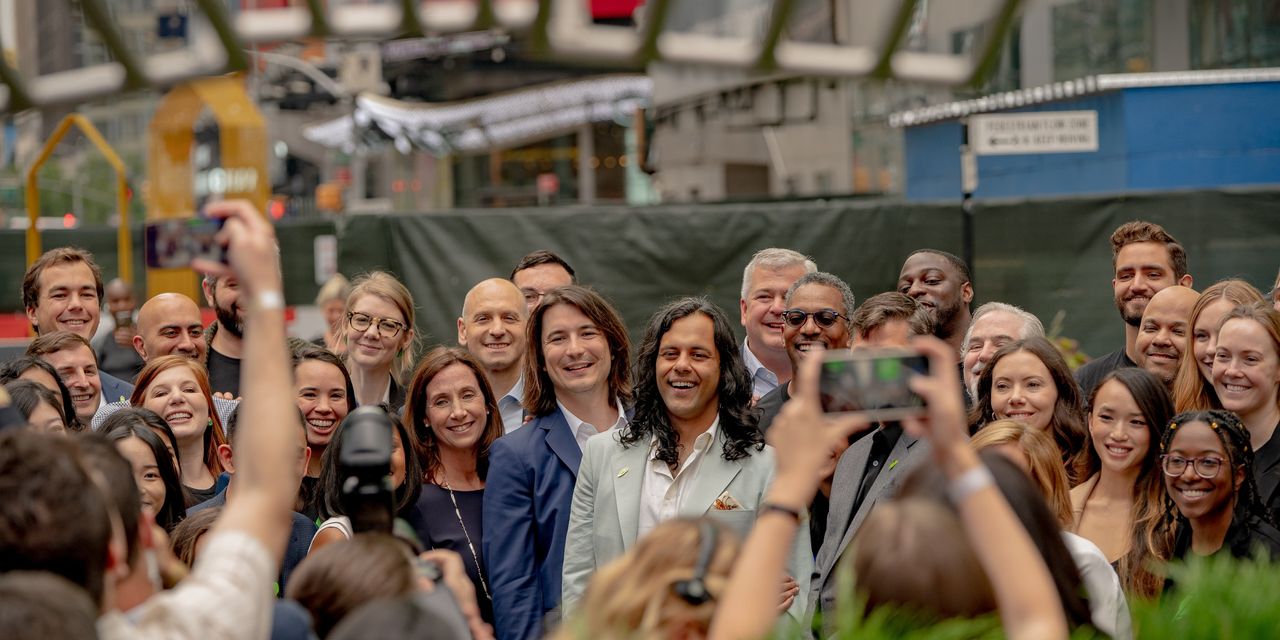Shares of Robinhood Markets Inc. jumped Tuesday, surging past the company’s initial-public-offering price in a reversal from last week’s underwhelming trading debut.
The company’s stock, which trades under the ticker HOOD, jumped 17% in recent trading to $43.92 and earlier touched a high of $45. Robinhood, the maker of the wildly popular zero-commission trading platform, debuted on Nasdaq last week, opening at $38 a share. Its stock tumbled shortly after trading kicked off, falling more than 10% intraday, before settling below $35.
In the days since, Robinhood’s stock struggled to surpass its IPO price—until Tuesday. A catalyst behind the jump wasn’t immediately clear.
Analysts and traders have been carefully watching Robinhood’s first few days of trading because of the company’s unusual decision to allocate a large chunk of its shares to its own customers. As much as 25% of the IPO shares went to Robinhood customers, The Wall Street Journal previously reported. Typically, individual investors receive well under 10% of IPO shares in such deals, according to brokers.
In the end, roughly 301,500 Robinhood customers participated in the IPO, the company said recently. Yet outside its customer base, data show, demand was tepid. Excluding IPO shares, individual investors purchased nearly $18.9 million of Robinhood shares on a net basis during its first day of trading, according to data from Vanda Research’s VandaTrack. In comparison, individual investors purchased a net $139.9 million of shares during Uber Technologies Inc.’s first day of trading and nearly $70 million during Didi Global Inc.’s trading debut.













































